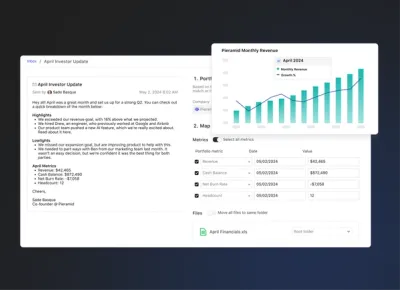
The Essential Guide to Option Pools: Definition, Purposes, and Benefits for Startups

Option pools are a vital component in the landscape of startups, particularly in the realm of employee compensation. They represent a portion of a company's shares set aside primarily for future allocation to employees, advisors, or consultants, typically in the form of stock options or other equity incentives. For startups, often constrained in terms of financial resources, option pools serve as a strategic tool to attract, retain, and motivate key talent by offering them a stake in the company's future. This guide delves into the definition, purposes, and benefits of option pools, providing startup founders with a comprehensive understanding of how to effectively utilize them.

What Is An Option Pool?
An option pool includes employee stock options (ESOs), restricted stock units (RSUs), and sometimes stock appreciation rights (SARs). It's generally established during financing rounds, where its size, expressed as a percentage of the fully diluted capitalization of the company, is negotiated between investors and founders. Option pools differ from other forms of equity compensation in their structure and function, specifically designed to align the interests of employees with those of the company and its investors.
Related resource: How to Secure Financing With a Bulletproof Startup Fundraising Strategy
What Is The Purpose Of An Option Pool?
The purposes of an option pool in a startup are multifaceted and crucial for its growth and competitive positioning in the market.
- Attract and Retain Talent: Startups, especially in their early stages, often struggle to match the salary and benefits packages offered by established corporations. An option pool allows these nascent companies to offer equity, which serves as a compelling incentive for talented individuals who are motivated by the potential for significant financial upside. This equity component in compensation packages not only attracts top-notch talent but also fosters a sense of dedication and commitment among team members, as they gain a stake in the company's success. The idea is that by sharing in the company's potential growth, employees will be more invested and motivated to contribute to its long-term success.
- Align Incentives: Beyond attracting talent, option pools serve as an effective tool to align the interests of employees with those of the company's founders and investors. By granting equity, all parties involved become stakeholders in the company's future, thereby creating a harmonious relationship that fosters collaboration and a shared vision for the company. The vesting process, which allows employees to earn their equity over time, further ensures their long-term commitment and motivation, as their benefits are tied to achieving certain milestones or continued employment.
- Compete for Talent: In the highly competitive startup environment, an option pool can be a critical factor for attracting top talent. This is particularly important when startups have limited cash compensation capabilities. By offering equity, startups can level the playing field against larger, more established firms that might offer higher salaries but less in terms of equity and potential for growth.
It's also important to note that the creation and management of an option pool require careful planning and strategic thinking. The size of the pool, usually ranging from 10% to 20% of the company's total equity, must be thoughtfully determined to balance the needs of incentivizing employees and preserving equity for future needs and rounds of financing. Furthermore, the allocation of these options is usually based on various factors such as job role, experience, and performance, and it's crucial to strike a balance between offering sufficient equity to motivate employees while retaining enough ownership for existing investors.
As well, the impact of an option pool on company valuation and stock dilution is a significant consideration. When new shares are issued from an option pool, it can lead to the dilution of existing shareholders' ownership. However, this is often seen as a necessary trade-off for attracting and retaining the talent needed for a startup's growth and success.
How Option Pools Work
Understanding how option pools work is essential for startup founders who seek to use this tool for attracting, retaining, and aligning the interests of their team. Here's a step-by-step breakdown of how option pools function:
1. Creation
The process begins with the creation of the option pool, which is approved by the company's board of directors. This crucial step involves specifying the number of shares that will be included in the pool. The size of the option pool is typically a percentage of the company's total equity, often ranging from 10% to 20%, depending on various factors like the company's growth stage, industry norms, and investor expectations. The board's approval is crucial as it formalizes the existence of the option pool and sets the stage for its strategic utilization.
2. Allocation
Once created, the shares in the option pool are reserved and set aside, making them unavailable for immediate purchase. These shares are typically carved out from the founders' equity, which is a strategic move to ensure that the interests of the founders and the employees are aligned. The allocation of these shares is done with a view toward future growth, keeping in mind the need to attract and retain key talent.
3. Granting Options
The next step involves the actual granting of options to employees, advisors, or consultants. This grant gives the recipients the right, but not the obligation, to purchase a specified number of shares at a predetermined price, usually the current fair market value, within a defined time frame. This timeframe is known as the vesting period, during which the recipients of the options can exercise their right to buy the shares.
4. Vesting
Vesting is a critical component of the option pool process. It refers to the period during which the options granted to employees become exercisable. This period is typically structured to occur over several years, with a common structure being a four-year vesting period with a one-year cliff. The cliff means that the employee must remain with the company for at least a year to earn any of the options. After the cliff, options typically vest monthly or annually, incentivizing employees to stay with the company and contribute to its growth over a longer term.
5. Exercising Options
Once the options have vested, employees have the choice to exercise them, meaning they can buy the shares at the previously agreed-upon price. This step transforms the employees into shareholders of the company, aligning their interests even more closely with the company’s success. The decision to exercise options can be influenced by various factors, including the company's performance, the employee's belief in its future success, and personal financial considerations.

Benefits of Options Pools For Startups
Option pools are a strategic asset for startups, offering several key benefits that align with the company's growth and employee satisfaction.
Talent Acquisition and Retention
In the competitive startup landscape, equity incentives provided through option pools are invaluable. They enable startups to attract high-quality talent, offering a compelling alternative to the higher salaries typically available at larger, more established companies. By offering a stake in the company's future success, startups can lure talented professionals who are enticed by the prospect of significant financial rewards, especially in the event of successful company exits like acquisitions or IPOs. This approach helps startups not only in attracting but also in retaining talent, as employees become invested in the company's long-term success.
Retention Magnet
Option pools serve as a powerful tool for retaining key employees. They align employee goals with the company's success, fostering a sense of loyalty and dedication. The vesting schedules, often spanning several years, encourage employees to stay with the company longer, contributing to reduced turnover and enhanced organizational stability.
Cost-Effectiveness and Flexibility
From a financial standpoint, option pools offer a cost-effective way to incentivize employees. Unlike cash salaries, equity incentives are tied to the company's performance, which means that the financial rewards for employees scale with the company's success. This arrangement is particularly beneficial for startups that need to manage cash flow carefully.
Flexible Talent Strategy: Option pools provide the flexibility to tailor equity incentives to specific roles and performance levels within the company. Startups can customize the allocation of options based on the strategic importance of different roles, allowing for a more nuanced approach to compensation that aligns with individual contributions and the company’s broader objectives.
Motivation and Alignment
By granting stock options, startups foster an ownership mentality among employees. This sense of ownership motivates employees to contribute actively to the company’s growth and profitability. When employees have a direct stake in the outcome, they are more likely to be engaged and aligned with the company's goals.
Learn More About Option Pools With Visible

Option pools are a critical tool for startups, offering benefits that extend far beyond simple compensation. They are essential for attracting and retaining top talent in a competitive market, aligning employee interests with those of the company, and providing a cost-effective compensation strategy. By creating a sense of ownership among employees, startups can foster a motivated workforce dedicated to the company's success. Managing an option pool requires strategic planning and an understanding of its impact on company valuation and equity dilution.
For founders looking to navigate the complexities of other startup challenges, Visible is an invaluable resource.
Raise capital, update investors, and engage your team from a single platform. Try Visible free for 14 days.
Related resource: The Ultimate Guide to Startup Funding Stages
Related resource: Startup Fundraising Checklist



